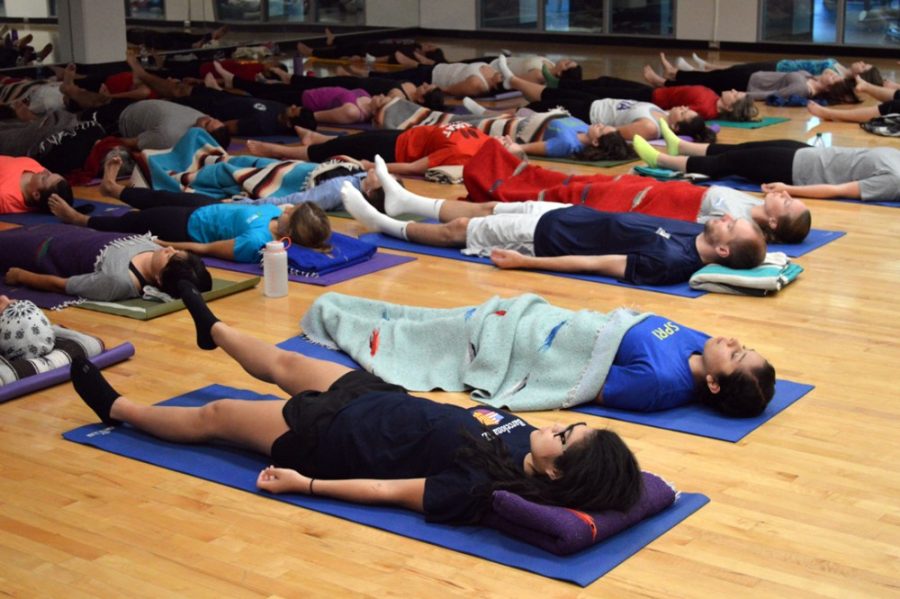It may sound New Age, but the UA’s recently established Center for Compassion Studies is developed from and guided by research.
“What we are aiming to do with the center is to explore and research the impact of the cultivation of compassion on individual, group and societal well being,” said Leslie Langbert, executive director for the Center for Compassion Studies.
The idea for the center started with Dr. Charles Raison, a professor of psychiatry at the College of Medicine — Tucson, from his previous work at Emory University. Raison is the director of the Center for Compassion Studies.
“We started doing studies in compassion meditation at Emory and had some interesting findings that led to the practice being codified into what we now call cognitive-based compassion training,” Raison said. “When I relocated from Emory to the [UA], one of my primary goals was to bring the compassion training with me and establish the work out here.”
Compassion meditation is a type of meditation focusing on both compassion for oneself and other individuals.
“Cognitive-based compassion training is derived from Indo-Tibetan Buddhist meditation, from the ‘Lojong’ tradition,” Langbert explained. “Lojong translates to ‘mind training.’ It has been rendered secular from the Buddhist tradition, because we recognize compassion is really an ethic that’s central to all individuals.”
Raison said that the best way he knew of helping people become more compassionate and perceive the world as more compassionate was through Tibetan Buddhish practices.
Working in conjunction with Lobsang Tenzin Negi, a former Buddhist monk and director of the Emory-Tibet partnership at Emory University, Raison conducted several studies examining the effects of compassion training on individual health.
“[We asked], if we take people and train them in this compassion meditation, can we reduce their inflammatory response to stress,” Raison said.
Raison had previously looked at the role of the immune system in depression and discovered evidence that immune system activation creates a pathway in which psychological stress increases depression, heart disease, stroke and cancer risk.
Strengthening this correlation, there was increasing evidence that people who have warm, close and supportive social relationships have lower levels of inflammation. There seemed to be something about positive social connectivity that has anti-inflammatory properties, Raison said.
“So we did a study to test [compassion meditation and the immune system], and the answer appeared to be yes,” Raison said. “We saw the signal that if you practiced compassion meditation, it had an anti-inflammatory effect.”
From the results of his research that linked social and mental wellbeing, Raison sought for a way to translate this research into health changes. This isn’t limited to the health sciences — its mandate is broad and incorporates departments across the university, from philosophy to environmental sciences.
Research may have led to the development of the center, but the center’s goals aren’t just research-based. The center provides a translational approach that brings research into practice.
The Center for Compassion Studies is already offering courses in the instruction of Cognitively-Based Compassion Training, as well as classes at the Student Recreation Center. For example, a weekly Yoga Nidra class is offered, a sleep-like form of yoga designed to promote relaxation and decrease anxiety.
“We’re looking to offer folks the tools to cultivate compassion,” Langbert said.
_______________
Follow Laeth George on Twitter.









